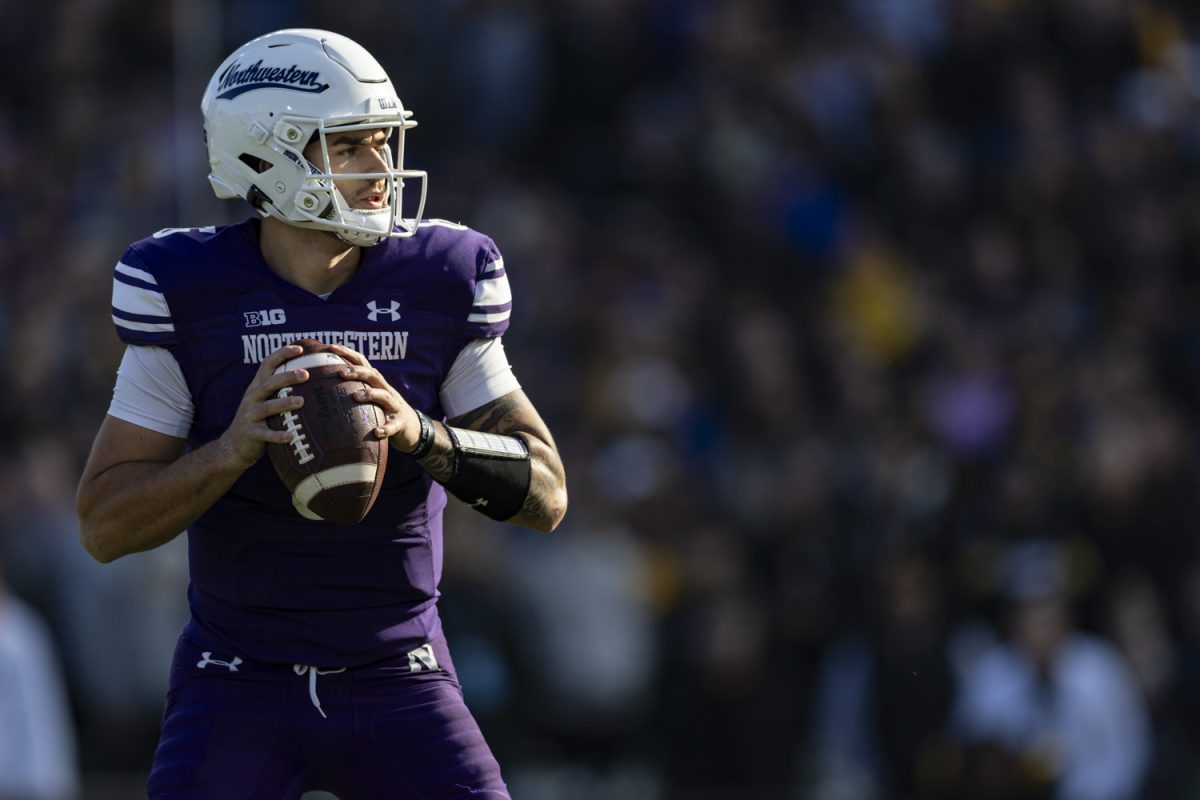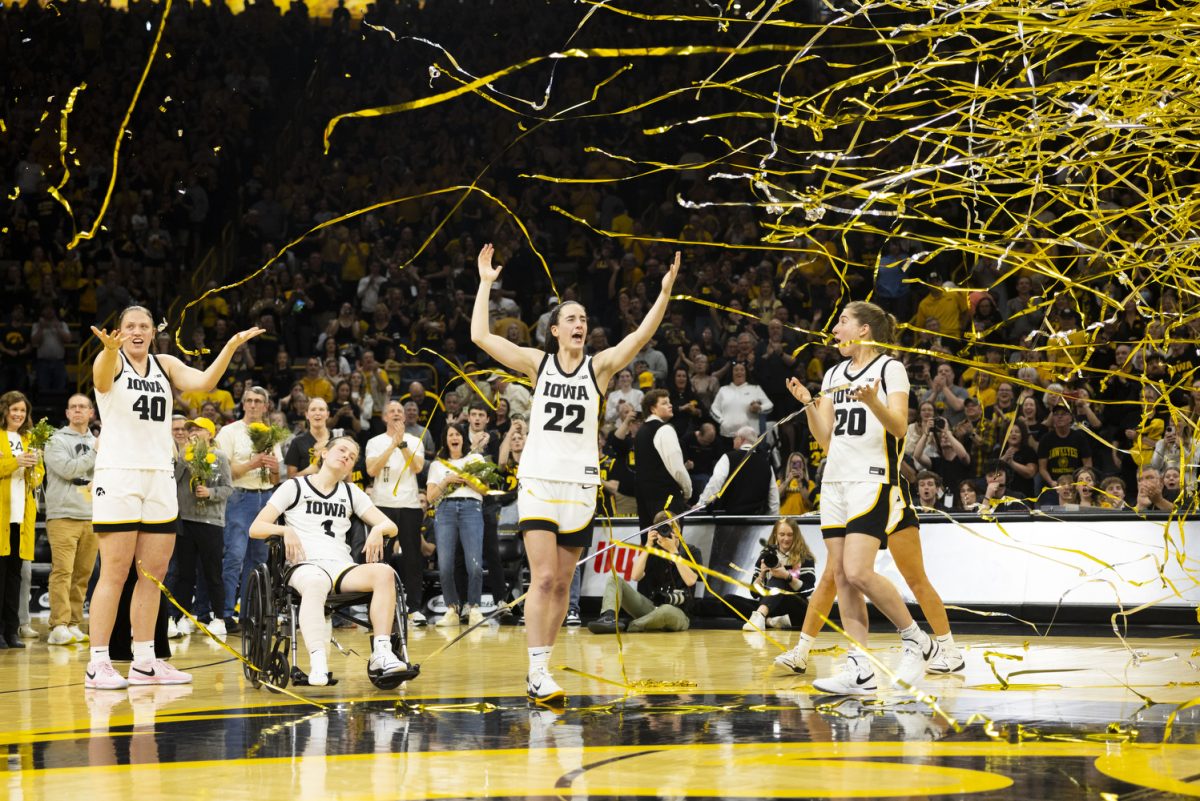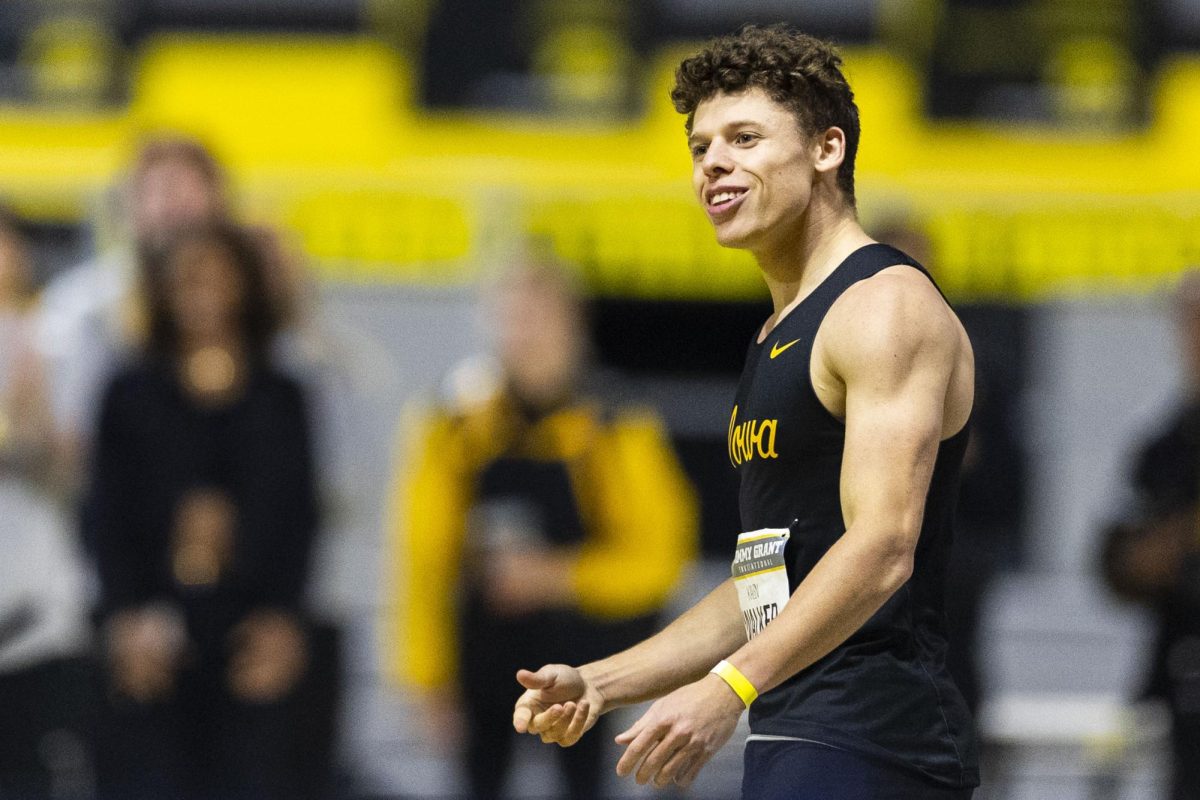In the past 35 years, Bob Rydze has been named Big Ten Diving Coach of the Year three times.
He has coached four Olympians, 31 All-Americans, nine Big Ten champions, and one NCAA champion.
But Iowa’s head diving coach is facing perhaps his biggest challenge yet: coaching Hawkeye junior diver Veronica Rydze, his 21-year-old daughter.
Playing for Dad can be tough. But Bob Rydze is not just any father. His lineage in the sport starts a generation back.
His father, a former president of USA Diving, judged the 1976 Olympic Games in Montréal. His brother, Richard Rydze, won a silver medal in the platform diving at the 1972 Olympics in Munich, Germany.
And now, Bob Rydze is not only the chairman of the board for USA Diving, he’s also an extremely accomplished college coach.
“I’ve been very fortunate to have a lot of really good divers,” he said. “That is the secret to being a good coach — having good talent.”
Most recently, talent has continued the Rydze family’s proud diving tradition in his youngest daughter, Veronica Rydze. However, Bob Rydze was initially reluctant to get his daughter involved in the sport.
She excelled in numerous sports growing up, including softball, track, and gymnastics. As the captain of her high-school track team, she led the hurdle relay team to victory at the Drake Relays.
“I actually wanted my daughter to be a softball player or a track athlete in college,” Bob Rydze said. “She was really good at both sports.”
Rydze’s other two children didn’t become divers, and after watching other coaches push their kids into the sport, he decided not to force it upon his children.
“Sometimes, coaches live through their son’s or daughter’s diving,” he said. “I saw that in some coaches. They also had a tendency not to do other things in life, such as doing other sports — especially when they were pushed into the sport really early, it was just diving, diving, diving.
“I don’t think it is a healthy situation in those respects. I wanted my children to do other sports. I knew if I pushed them into diving and started coaching, that’s all we would be doing.”
But the summer before Veronica Rydze’s freshman year of high school, she decided to dive in. She said her decision had nothing to do with her family’s background or her father’s stature in the sport.
She simply had more fun diving than participating in other sports.
However, when she elected to dive competitively, she hadn’t dived very often.
“She got up on the board every now and then,” Bob Rydze said. “But she spent most of her time playing softball and other sports.”
He quickly figured out that he had something special when she did step onto the board, though.
She became a two-time state champion in the 1-meter in high school and a National Swimming Coaches Association All-American.
Once Bob Rydze discovered his daughter’s diving talent, he kicked himself for not starting her earlier, because it takes six or seven years to become an exceptional diver.
“All the aspects are hard to perfect,” he said. “First, you have to be born with the kinesthetic sense of awareness and some agility. That’s got to be in your genes to begin with. It takes a long time to learn what it means to be tight going into the water. The entry is the most important part of the dive because it’s the last thing the judges see.
“The second thing is perfecting takeoffs, and the third thing is becoming consistent when you’re in the air and knowing how to react to the situation and how to make adjustments.”
When it came time for Veronica Rydze to choose a college, her father stayed out of the recruiting process, leaving the choice entirely to Veronica and her mother.
Had she chosen to attend one of the many other top diving schools in the country, he said, he would have supported his daughter. But she chose to become a Hawkeye.
“I kind of always knew I wanted to come to Iowa,” she said. “[My dad] has taught me so much, and I just wanted that to continue.”
The success on the board has carried over from high school to college. Now a junior, she’s posted the ninth-best 1-meter score and the sixth- and eighth-best 3-meter scores in school history.
Last season, she and fellow diver Deidre Freeman placed seventh in the 3-meter synchronized event at the U.S. Diving Nationals.
While there has been the success, the daughter and father have encountered some frustration.
Bob Rydze teaching Veronica how to dive sometimes became challenging when coaching at the pool carried over to home life.
“If she stays out late at night one night, I’m not upset that she stayed out late,” he said. “I’m more upset with how that affects her training.”
He sometimes felt as though he wasn’t a good parent, he said, often giving his “two cents’ worth” during her high-school sporting events.
Veronica recalled an instance while running track for City High when her father stood in the middle of the field with her coaches while other parents cheered in the stands.
“It was more frustrating during high school than it is now,” she said. “It’s not too bad anymore. Plus, I’m more mature than I was back then. You just try to keep diving and family separate, which is what usually happens.”
For Bob Rydze, there are times when it’s tough for the father.
Veronica Rydze has battled some injuries in her collegiate career. She missed part this season with a back injury, returning to action on Dec. 11, 2009. But injuries are an aspect of sports that a coach must accept.
“The injuries get you more emotionally involved,” Bob Rydze said. “As a father, you just want to see her healthy and able to compete. It’s a balancing act.”
The two said they have a great relationship both in and out of the pool. While both are competitive by nature, Bob Rydze emphasizes academics as the top priority.
“I know she wants to graduate from college and get a job,” Bob Rydze said. “Whether she’s going to compete after that, I don’t know. But the most important thing is getting her degree.”
Spoken like a true father.






